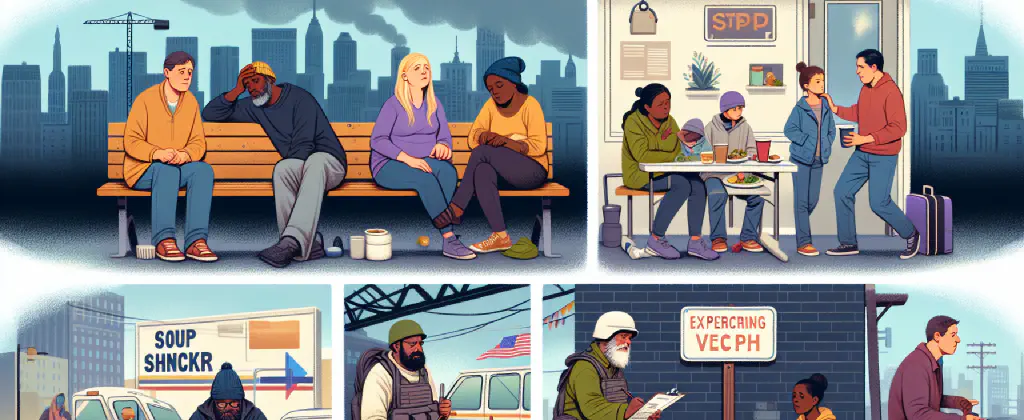16. December 2023
Homelessness Crisis: Beyond the Broad Label

Homelessness has reached its highest reported level in the United States in 2023, leaving many questioning the effectiveness of current approaches to tackle this complex issue. The broad term “homeless” doesn’t capture the diversity of situations and underlying causes that contribute to this crisis. While some individuals may be in need of temporary assistance due to unfortunate circumstances, others face mental health challenges or addiction issues that require more specialized support. In order to address this problem, it is crucial to understand the various factors contributing to homelessness and tailor solutions accordingly.
The Broken Mental Health System
One significant factor exacerbating homelessness is the broken state of mental health care in the United States. Many individuals struggling with mental illness are unable to access the help they desperately need. The system is plagued by a lack of resources, limited access to treatment, and shortfalls in continuity of care. Mental health hospitals often prioritize quick discharges, leaving patients without proper follow-up and support. This inadequacy in care directly impacts homeless individuals with mental health conditions, causing their situations to deteriorate further.
The Personal Struggles of the Homeless
To shed light on the personal struggles faced by homeless individuals, let’s turn to the firsthand experiences shared by those who have experienced homelessness themselves. These narratives highlight the challenges of obtaining consistent healthcare, navigating system limitations, and the impact of untreated mental illness. One individual spoke of the difficulties in accessing regular psychiatric care during the COVID-19 pandemic, which intensified the effects of their schizoaffective bipolar disorder. For many, homelessness compounds the stress of living in unstable conditions and limits their ability to receive proper treatment and care.
Insufficient Support from Professionals
Adding to the complexity of the crisis is the fact that not all homeless individuals receive the assistance they so desperately need. Some individuals who seek help are met with unhelpful or unsuitable support professionals. This can result in worsening conditions and negative experiences that deter them from reaching out for help in the future. The lack of funding and limited options for quality care further exacerbate the challenges in addressing homelessness effectively.
Challenging Stereotypes and Identifying Solutions
It is essential to challenge stereotypes and misconceptions about homelessness. Not all homeless individuals can be painted with a broad brush, since their experiences, needs, and circumstances differ greatly. While some may be able to benefit from job opportunities and secure housing, others require more targeted support to address underlying mental health issues, addiction, or the simple lack of access to safe and affordable housing.
The Need for Policy Reform and Political Will
To tackle the homelessness crisis, there is a need for comprehensive policy reform and increased political will. The focus should be on providing adequate mental health care, affordable housing, and personalized support systems. Creating a “give people free money and freedom to do with it whatever THEY think is necessary” model, as suggested by advocacy groups, could offer promising solutions. However, the implementation of such a model faces political sensitivity.
Taking Action to Alleviate Homelessness
While there is no perfect solution, any action taken to address homelessness is better than no action at all. Recognizing that housing stability is a crucial first step, providing accessible affordable housing is key. Efforts should also be made to improve mental health care, ensuring that individuals receive the support they need. Striving for a more nuanced approach that acknowledges the diverse experiences of the homeless population is essential.
Beyond Labeling: Addressing the Underlying Causes
It is clear that the issue of homelessness cannot be solved by merely labeling individuals as “homeless” and applying broad solutions. To truly address this crisis, it is imperative to identify and address the underlying causes of homelessness. This includes reforming the mental health care system, expanding access to affordable housing, and developing personalized support systems tailored to the unique needs of individuals experiencing homelessness. Through compassionate and comprehensive approaches, we can strive to alleviate the suffering and provide opportunities for a brighter future for those affected by homelessness.